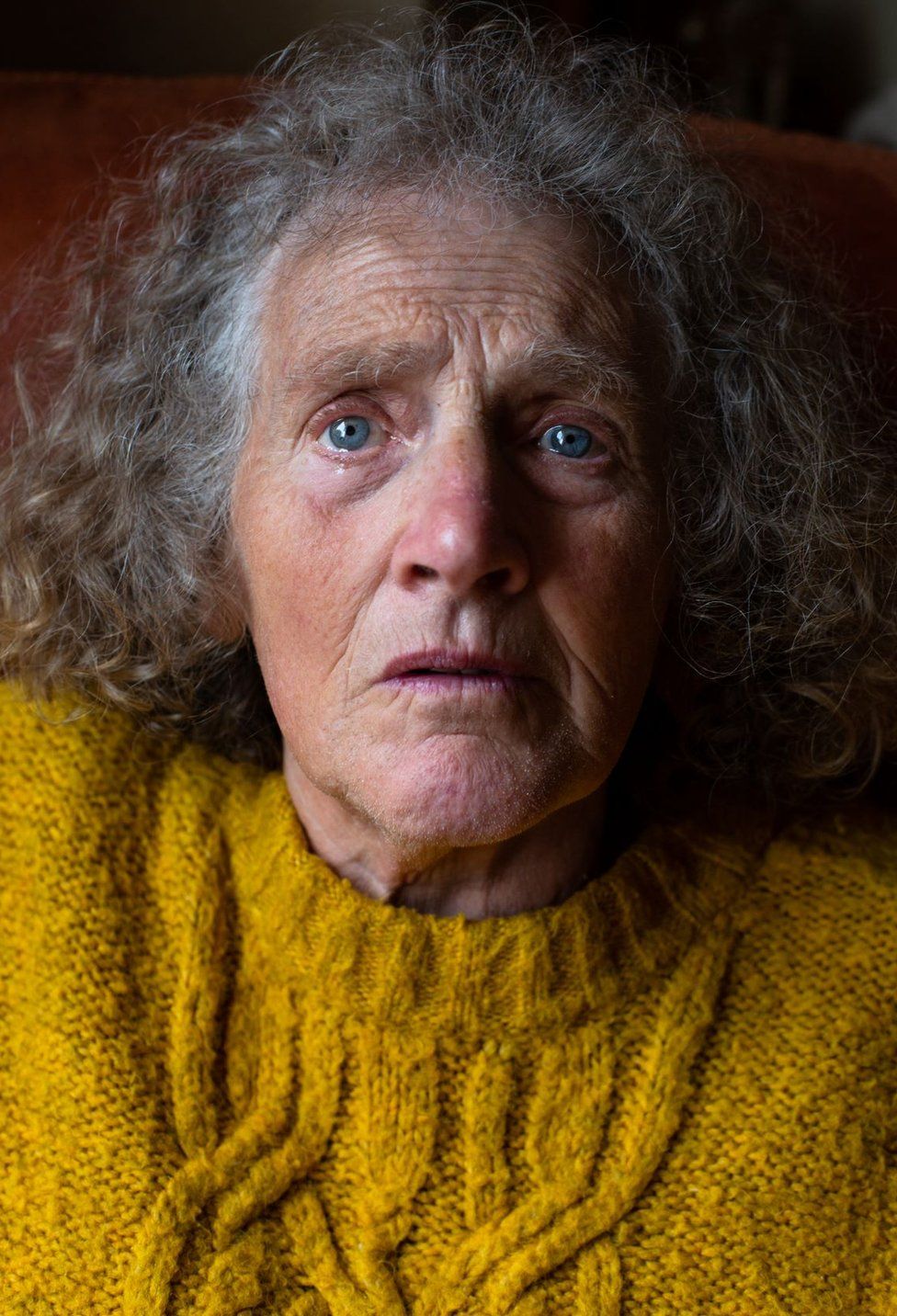Dementia: Photos lay bare agony of slowly losing mum
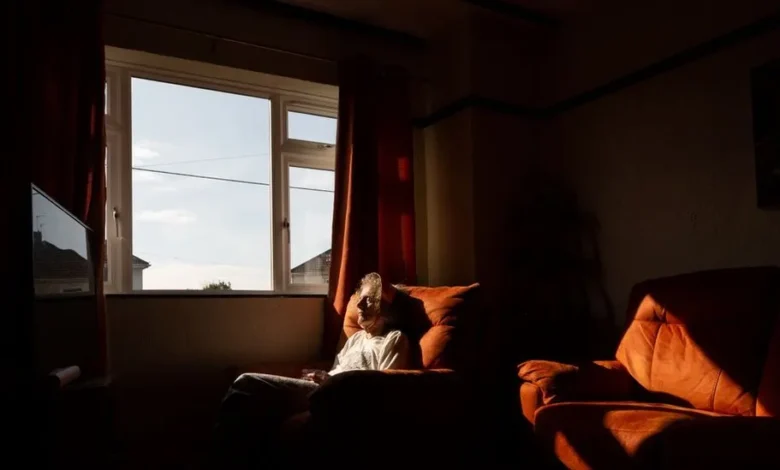
“With dementia it’s like them dying over and over and over again, slowly.”
Helen Rimell has been grieving for her mother Susan since she was diagnosed with early onset vascular dementia in 2015.
Two years ago Helen, a professional photographer, left her life in London to move back to south Wales to become her 75-year-old mother’s full-time carer.
The photojournalist and wedding photographer had been taking pictures of her mum for decades and continued to do so, leading to a very personal project titled No Longer Her(e).
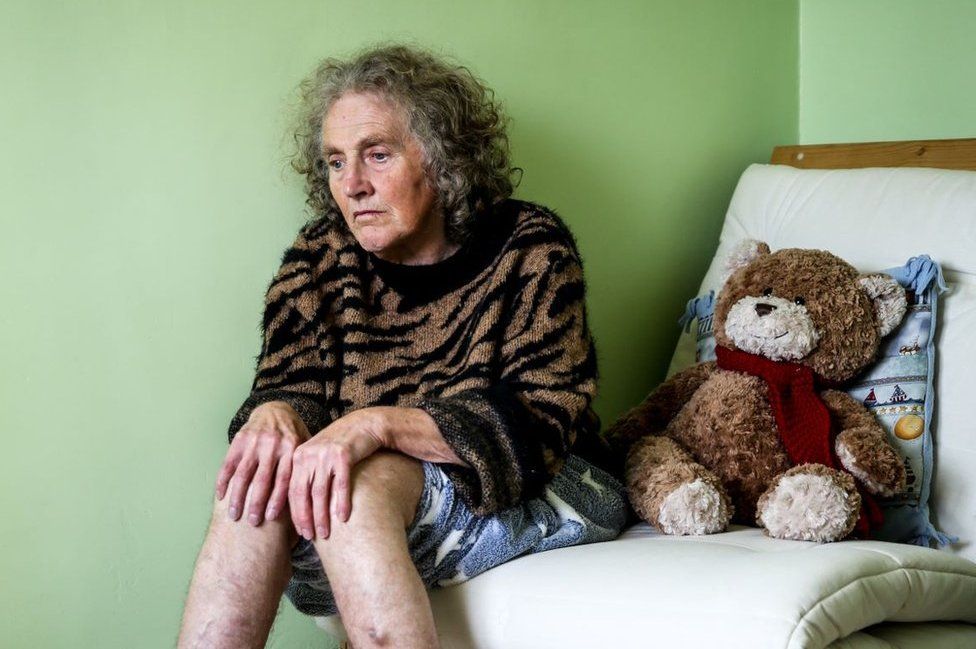
Her images capture her mother’s decline in the little details from everyday life at home in Llantwit Major, Vale of Glamorgan.
A broken glass lies in a pool of liquid after she smashed it on the floor.
A tooth-marked bar of soap in a dish tells of the time her mother tried to eat it having lost the ability to understand what is edible.
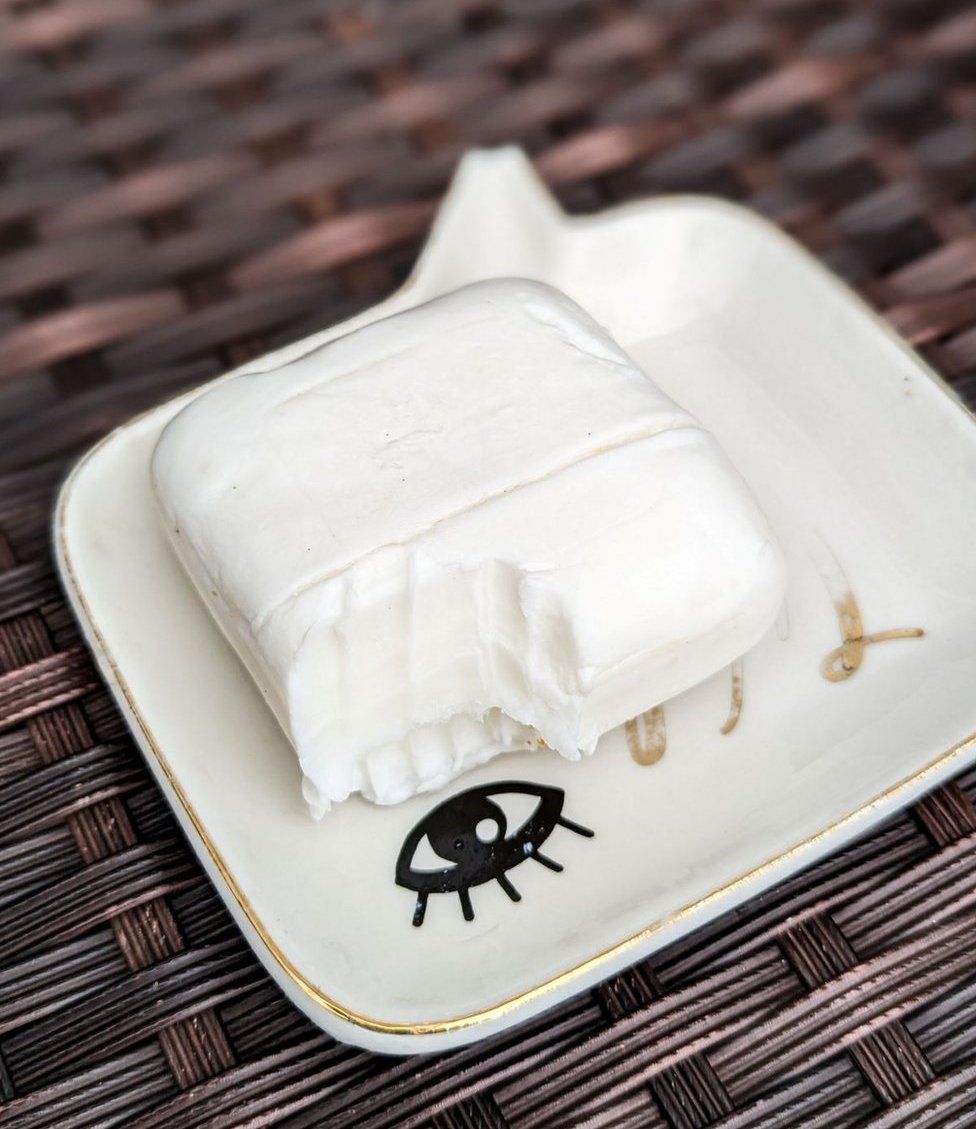
Other images include Susan being spoon-fed by her young granddaughter and her lying on her bed having forgotten how to dress herself.
“I was trying to process the grief and the loss because she was becoming less and less herself all the time,” said Helen.
“She is here but she isn’t, and she is herself but she’s not.”
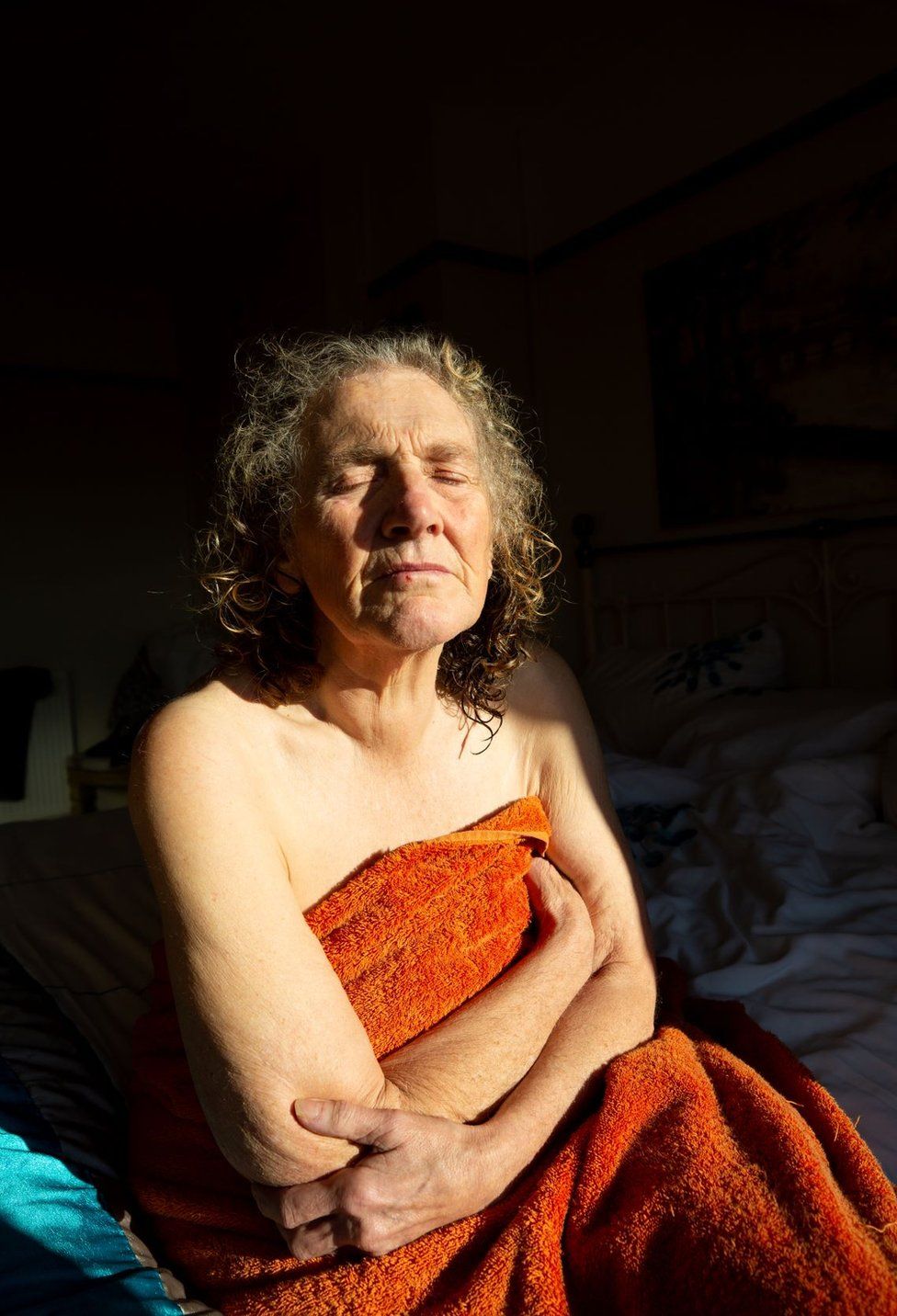
The photographs recently won a grant from the Bob and Diane fund, an annual grant for visual storytellers about Alzheimer’s and dementia.
Helen and her mother have always been incredibly close.
“She was my best friend, I told her everything,” said Helen.
“She was fun, she was funny, she was kind, she was caring, really empathetic, really compassionate.
“She was the only person that actually really understood me and had my back.”
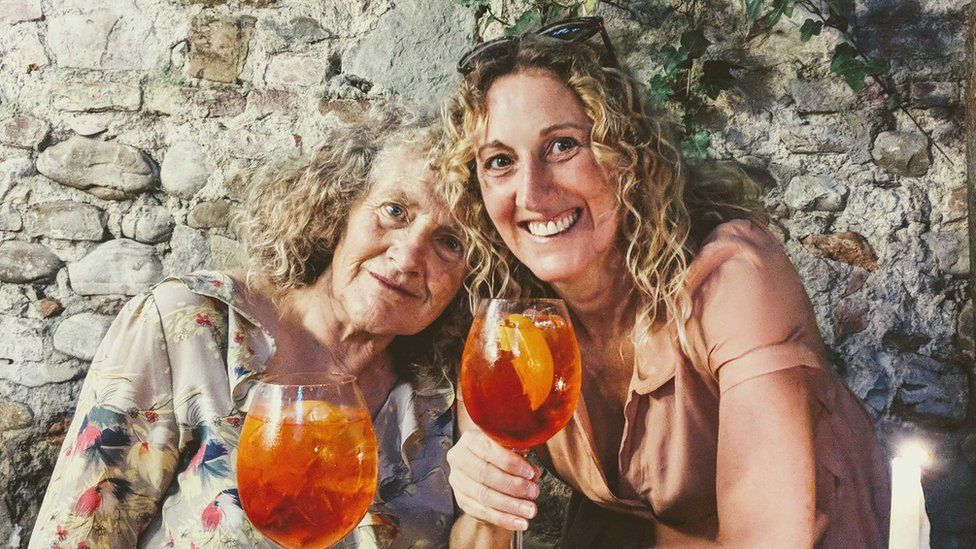
Back in 2010 Susan suffered a bleed on the brain. In the years that followed she began sometimes forgetting people’s names and some words.
After her dementia diagnosis in 2015 the progression of the disease initially seemed slow.
Helen cherishes a trip around Europe she took with her mum in 2018.
“At that point she was forgetful but she was still really great fun, really great company,” she said.
“She absolutely loved that trip. Every day we had an Aperol spritz at sunset.”
When Covid arrived in the UK in 2020, Helen was forced to spend more time away from her mother and began to notice more and more of who she once was slipping away.
Her mother could no longer recognise places, and would sometimes get lost when leaving the house and be brought back by police officers.
Her childhood home – Langland on the Gower peninsula – was somewhere Helen took her for visits frequently, and her memories of the place were some of the last to leave.
“I took her there in February 2020 and she looked around and didn’t remember – that for me was huge,” said Helen.
During the pandemic Susan’s carers stopped coming to her house, and in September 2021 Helen decided to move home to care for her mum herself.
“It’s really hard in every way, mentally, emotionally and physically,” said Helen.
Susan went through a period of being aggressive and violent.
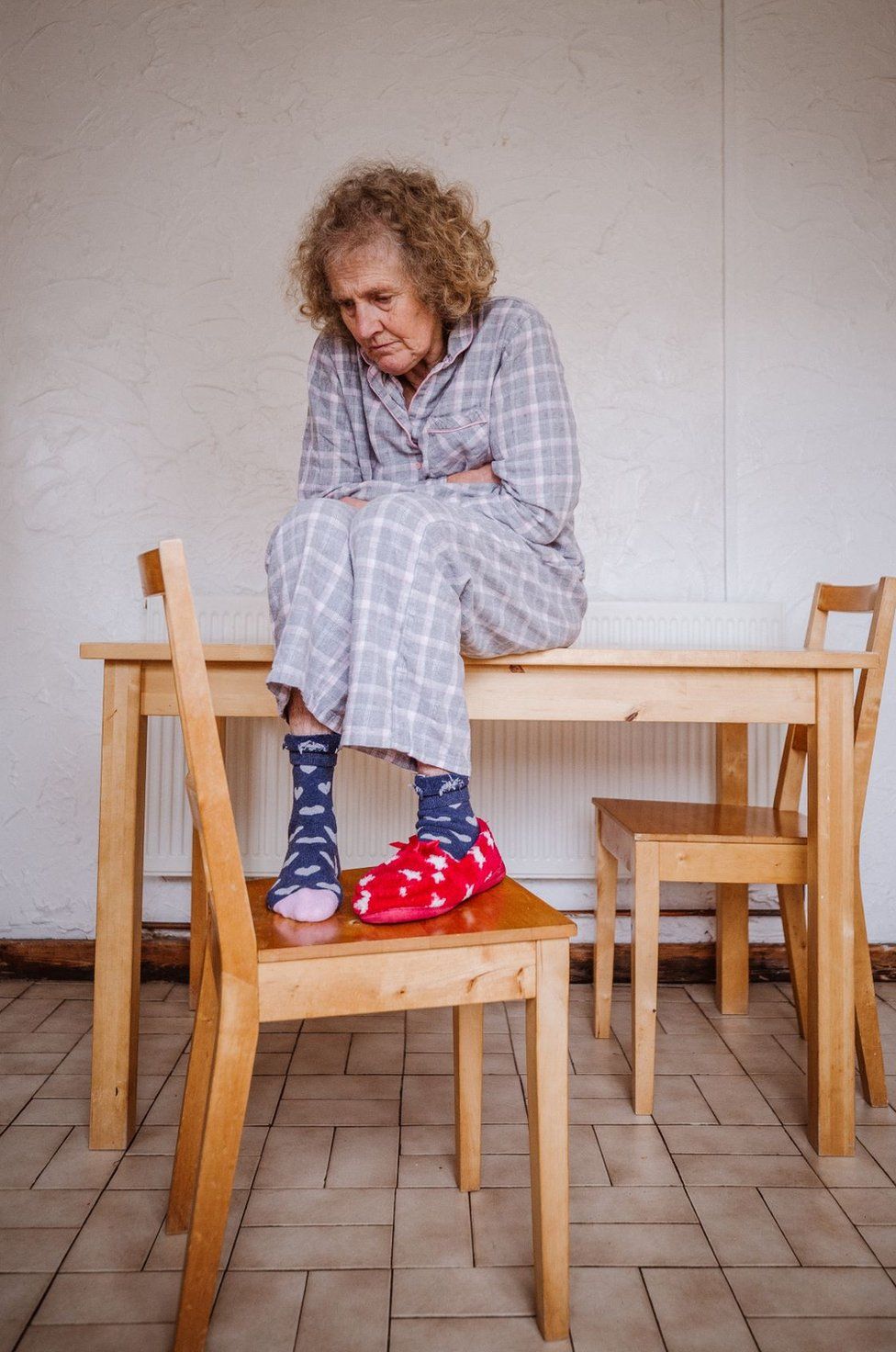
“She hated bath time. She would dig her nails in, bend your fingers back, hit, slap and fight you,” said Helen.
“At first she was really manic – up, down, up, down, up, down, walking around, moving furniture, dragging tables, dragging furniture for hours every evening… fighting you for every bit of personal care, breaking things. She’d wander if you left the door open so you had to lock her in.”
Susan can no longer have a conversation, use cutlery and is incontinent.
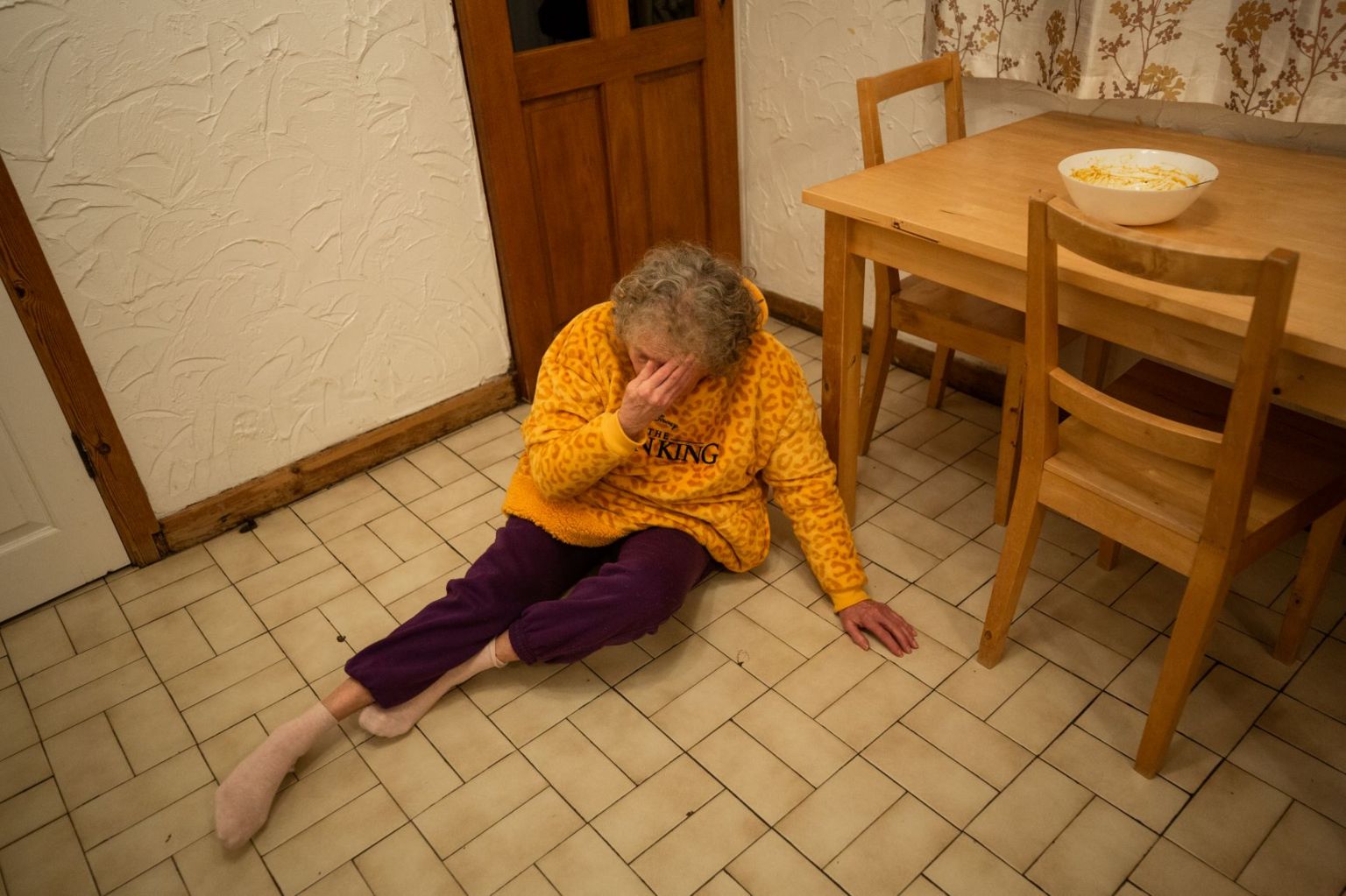
There are small moments of happiness.
“She used to love dancing. You’d put Elvis on and she’d be up jiving and dancing in the living room – now she still taps her foot,” said Helen.
What would Susan make of these very personal images?
“We talked about it, my mum and I, that I was going to document her disease, document our relationship, it was always a plan, she said it was important,” said Helen.
“I documented her pretty much on and off since I was at university. She’s always let me and she was always super supportive of my career.”
When Helen was a student she did a project about her mother’s obsessive compulsive disorder (OCD), and she even posed naked in her bath for a photograph.
“We’ve got that relationship together – she trusts me and I trust her,” explained Helen.
The past few years have been incredibly difficult for Helen as she juggles caring for her mother with trying to keep her business afloat.
She still has her home in London, but it feels like another world away.
“I used to go swing dancing four times a week, but now it is difficult to keep up friendships. I don’t feel part of my life in London,” said Helen.
“I don’t seem to have a purpose. I’m stuck in limbo while everyone else moves on with their lives.”
Dementia has turned out to be something very different to what Helen thought before becoming a carer.
“I didn’t really know how bad dementia was or what it got like at the end,” she said.
“In films you have this sweet little old person sat in a home and they forget your name but at the last minute they remember how to dance with you and a favourite song.
“But it’s not like that. Their whole personality changes, not to mention all the physical demise and the aggression and all the different things that come with it.”
Despite having to park her own life and the grief she lives with daily, Helen has no regrets.
“I’d do it all again – she did it for me and I want to return the love she’s given to me.”
